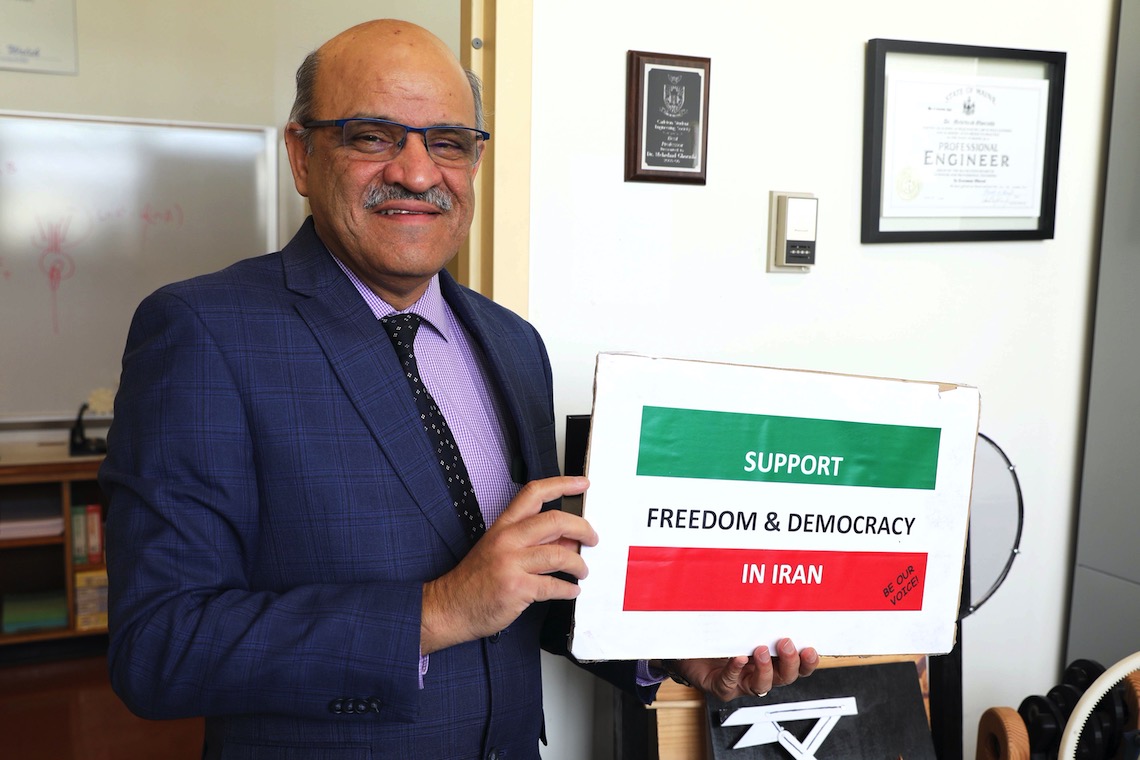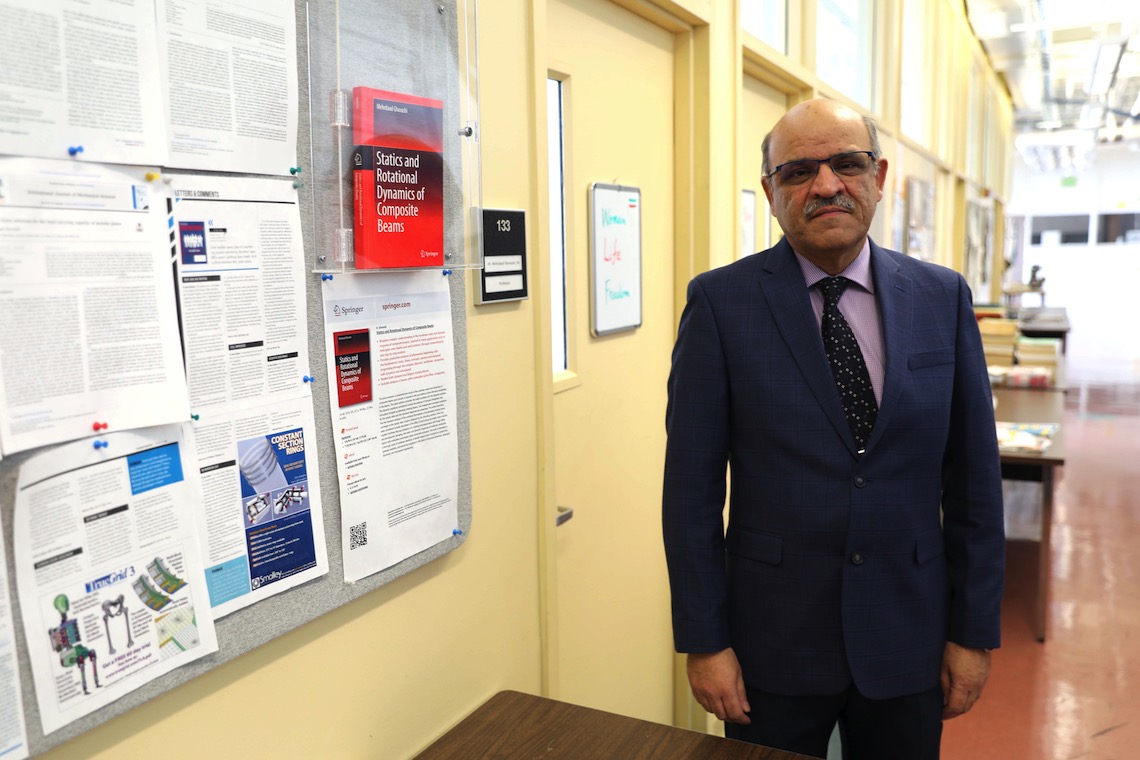
Dr. Mehrdaad Ghorashi is a professor of Mechanical Engineering and a native of Iran. Click on the link to read more about the journey that led him to the University of Southern Maine.
Ghorashi has been closely watching the recent news out of his former home country. Months of protests began last September when a woman died of the injuries she received from Iran’s morality police who accused her of wearing her head scarf improperly. The government responded to protesters with more violence resulting in hundreds of deaths, injuries, and arrests. Several protesters have been executed and with many more languishing on death row.
In this Q&A, Ghorashi shared his personal insights on the political and cultural currents that are driving the conflict.
What do Iranians want these protests to achieve? Their main slogan is “Woman, Life, Freedom.” At its core, Iranians are seeking all the ideals that democratic countries like the United States were founded upon: democracy, liberty, human rights, and equal opportunity. We have regular elections in the U.S. to choose our leaders and some of us take this liberty for granted. We should know, however, that every day, many people around the world are risking their lives in order to obtain or protect this right.
Does this protest seem different from all of the others that have been suppressed in Iran over the years? To me, the current protests are different from the ones in the past in many ways. The main difference is that this one has no clear leader that could be arrested and it is fully organized by using social networking websites. That is why it has sustained the brutal crackdown imposed by the regime for several months. This is the longest duration of non-stop and nationwide protests in Iran after the 1979 revolution. It has attracted millions of Iranians and people of other nationalities inside and outside of Iran who believe in a democratic Iran. It is not limited to a certain ideology or political group.
Instead of protesting, why don’t Iranians try to change their leaders by elections? Iran is a republic in name only. I would gladly give a lecture on why the Islamic Republic of Iran is not Islamic and uses Islam as a pretext to justify its crimes; it is not a republic because its election mechanisms disqualify any real challenger before people can vote; and it is not Iranian because it has destroyed this country. . . These rulers have all the authority with no responsibility. No one can question what they do with all that authority.
Do you think these protests could be a turning point in the relationship between the Iranian people and their government? We are well past a turning point in the relationship between the people of Iran and the government. People have no hope for any real improvement in this regime’s behavior. The regime has clearly announced that any leniency in its response to the protests can be considered as a sign of weakness and result in more radical demands. During these past 44 years, all scenarios of improvement in the regime’s behavior have been tested, and in all cases, they have met with harsh resistance by the hardline core of this regime. There is no doubt in my mind that the so-called Islamic Republic is a terrorist government and it should be dealt with like any other terrorist entity. The only acceptable outcome in Iran is a total regime change. This is what the majority of Iranians all over the world and especially inside Iran are demanding.
What can the international community do to help? The proper response to this regime is to cut all economic and political ties with it. I am not talking about just sanctioning one or two people who have been involved in the crackdowns. I am talking about full-scale sanctions at the level that were imposed on countries like South Africa during apartheid. Those were the sanctions that not only did change the behavior of the South African regime, but also, they ultimately changed that government altogether. Without such harsh actions, the previous South African regime would have most likely still been in power. Of course, Iran has oil, and cutting economic ties with it will be painful, especially for several European countries. However, it will eventually result in a better world for all humanity.

How would you sum up your feelings about the future that Iranians are fighting to bring about? Iranians are mourning their slaughtered sons and daughters, but they are hopeful that all this bravery will not go in vain. The regime wants to erase all of the evidence of the crimes that it has committed. However, the resistance forces and their supporters around the world must prevent what the regime is doing and document its crimes for future prosecution of the regime leaders and their agents. The future is bright and a free Iran is what Iranian people deserve.

